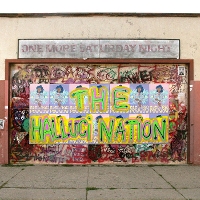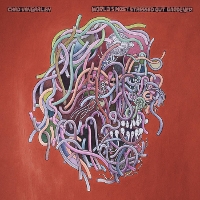|
Beating Like A Hammer: On The Phone With New Wave Indie Superstars METRICThey Traveled the World to Find the Latest Record's Sound, But Ended Up Around the Campfire to Test Their Mettle The phone rings as I wait for James (Jimmy) Shaw from Metric to pick up. Shaw wanted to do the interview at the very un-rockstar-like 9am. Instead, it is dinnertime. “Jimmy,” as his publicist calls him, is doing interviews to promote Metric’s latest album Fantasies. Most noticed Metric a few years ago when their breakthrough record, Live It Out hit the airwaves. They were not a new band then, but it was impossible to forget the video for “Monster Hospital”—lead singer Emily Haines’ lovelorn voice accompanied by images of her bending to touch her toes with a negligee-like short skirt creeping up to reveal her underwear. The band may have learned to be consummate showmen, but they have always been dedicated to their craft. Both Haines and Shaw also contributed to the early years of Canada’s other indie super group Broken Social Scene. In interviews, Haines has stated that she is especially proud that she wrote “Anthems for a Seventeen-Year-Old Girl” from You Forgot It In People. This mean Metric, along with other indie superbands bands like Final Fantasy and Stars, are in the unofficial Brotherhood of the Broken Social Scene, the tight knit Toronto indie scene of the early 2000s. With this year’s release of Fantasies, Metric is one of Canada’s biggest indie/new wave acts. By now, they could easily be on a major label, coasting on the perks of a corporate advances. Instead, Metric decided to front this album themselves—literally putting their money where their mouth is.  On Finding Studio Inspiration: I like to be able to walk out of a studio and see something amazing. Whether it's Electric Lady, which is on 8th Street, and sort of has that magic vibe because that was Jimmy Hendrix's place. Or whether it's Bear Creek in Seattle, which is on a 10-acre farm. It's the longest one single family-owned studio in America. So, it has like a whole other energy to it. It's the personality-less studios that I could do without.
On Finding Studio Inspiration: I like to be able to walk out of a studio and see something amazing. Whether it's Electric Lady, which is on 8th Street, and sort of has that magic vibe because that was Jimmy Hendrix's place. Or whether it's Bear Creek in Seattle, which is on a 10-acre farm. It's the longest one single family-owned studio in America. So, it has like a whole other energy to it. It's the personality-less studios that I could do without. 
Balls and talent. I can’t wait to chat. And Shaw picks up. Scott Wood: In other interviews, you guys have talked about how money enabled you to do what you wanted for the album. What does that mean? Jimmy Shaw: There were a couple of different aspects to that. One, We decided to finance the record ourselves, which was a difficult pill to swallow, considering we also wanted to take more time making the record than we have before and feel less in terms of when we’re gonna stop recording. If we didn’t feel things were ready, then we weren’t gonna release them, and we were just gonna keep working until we felt comfortable. Physically and technically where that brought us was to a lot of different studios. We worked in my studio, which is in Toronto, called Giant. That was sort of like the home base of operations. We also went to Vancouver and worked out of The Warehouse and The Armory. We went to Bear Creek in Seattle and started a lot of the writing there, and ended up using some tracks from there. We went to Phase One and MetalWorks in the suburbs of Toronto. So, it brought us a lot of places in search of this specific large-scale drum sound that we were going for. So it stretched the record out, and gave us a lot of different flavors to work with. Scott Wood: Interesting. Why so much traveling? Jimmy Shaw: I really think that a lot of it was about us chasing this sound that we knew we wanted to get for these drums. We were gonna be able to get it from The Warehouse and we went to The Warehouse and we tracked what we thought was gonna be the record. And then it turned out that songs changed, things changed, and ideas changed. Before we knew it, we wanted to change songs. And therefore, we had to start again.  On the Broken Social Scene Brotherhood: For the musicians here in Toronto, if not all of Canada, there was such a long feeling that we could never even enter the game in the US, that when we finally broke through and started to have our musical voice heard, we all automatically banded together, and identified with each other, and supported each other.
On the Broken Social Scene Brotherhood: For the musicians here in Toronto, if not all of Canada, there was such a long feeling that we could never even enter the game in the US, that when we finally broke through and started to have our musical voice heard, we all automatically banded together, and identified with each other, and supported each other. 
At that point, I’m pretty sure ACDC took over The Warehouse. They wouldn’t tell who it was, but we knew it was someone. So, it forced us to go try other places. We ended up trying a lot of places to get that sound. Scott Wood: Can you talk a little about what does or doesn’t work in terms of a place when you are crafting a sound? Jimmy Shaw: Ultimately, what works the best is when you’re comfortable, when you are sort of into the idea of your surroundings. In terms of playing live, when you walk into an amazing venue, you tend to play an amazing show—because you are inspired. And when you walk into an amazing studio, you tend to lay a great track down—because you are inspired. Just following inspiration is the most key thing. Scott Wood: I'm a guy who has never recorded in a studio. Can you describe what physically makes for a great space? Jimmy Shaw: To me, obviously there’s sonics and there’s gear. You wanna make sure there’s great equipment and the room sounds good. There’s studios outside Toronto that are in strip malls and out by the airport and near gas stations and near dentist’s offices—and I don’t find that all that inspiring. I like to be able to walk out of a studio and see something amazing. Whether it’s Electric Lady, which is on 8th Street, and sort of has that magic vibe because that was Jimmy Hendrix’s place. Or whether it’s Bear Creek in Seattle, which is on a 10-acre farm. It’s the longest one single family-owned studio in America. So, it has like a whole other energy to it. To me, as long as it has a tangible energy that sort of gives it its own personality—It’s the personality-less studios that I could do without. Scott Wood: I was reading the Pitchfork review of Fantasies and it managed to name check all of Metric’s friends and collaborators—a lot of them are the Broken Social Scene Brotherhood. When you go to the US, how do they feel about Canada, or Toronto, having such an insular scene? Jimmy Shaw: I feel like the first question they all ask is “Is it really like we think it is?” “Are you guys really all friends?” “Is that actually possible?” The answer is yes.  His Favorite Metric Song to Play Live: I really enjoy playing "Stadium Love" right now because it's just like a sonic assault. The Basis for "Stadium Love" is not in songwriting. Its basis is in sonics, and in energy, and in its lyrics - the story of some weird post-apocalyptic moment, where all of nature's animals turn on each other and the whole world eats itself!
His Favorite Metric Song to Play Live: I really enjoy playing "Stadium Love" right now because it's just like a sonic assault. The Basis for "Stadium Love" is not in songwriting. Its basis is in sonics, and in energy, and in its lyrics - the story of some weird post-apocalyptic moment, where all of nature's animals turn on each other and the whole world eats itself! 
My general sense of why it’s so different to America is because America has a much more inherent sense of competitiveness. The musicians there are more competitive towards each other. There’s this sort of ingrained sense that there are only one or two spots at the top. Anyone that’s gonna be there standing beside you, inevitably you are gonna have to fight against on your way to the top. For the musicians here in Toronto, if not all of Canada, there was such a long feeling that we could never even enter the game in the US, that when we finally broke through and started to have our musical voice heard, we all automatically banded together, and identified with each other, and supported each other. We realized that it was such a rare opportunity that we’re actually being heard as an important voice that we weren’t gonna let the hole get any smaller. We were just going to try to cram as much amazing music in that opportunity as possible. And therefore, we supported each other and talked about each other in interviews. That sort of like completely killed the competitive spirit and has left a lot of American media outlets baffled as to why we are all still friends, if we’re all sort of at the same level. They don’t totally get it. But, me, I totally get it. It’s like we’re all actually friends. We were actually friends way before any of us had starting booking gigs at the smallest clubs in Toronto, let alone the big clubs all over the world. Scott Wood: When you do leave Canada, do you find being associated with the Brotherhood makes it harder to create Metric’s own identity as a band? Jimmy Shaw: No. I don’t really find that. It would be one thing if everybody sounded the same, but nobody sounds the same. Death From Above and Feist could not sound more different. Metric sounds nothing like Broken Social Scene—like literally nothing like it—so it’s hard to loose you individuality. As long as the music stays true to who everybody is, then you have no problem. Scott Wood: Great, let’s talk a little about the music. I was reading a quote of yours where you were saying that today’s music need a little more honesty, perversion, confidence—and a little more Darryl Hall [of the legendary 80s super group Hall and Oates]. Where do we find all of that in Fantasies? Jimmy Shaw [chuckling]: Well, unfortunately, my calls to Darryl Hall were unreturned and we couldn’t get him in on back up vocals. But the rest of it—I find that we prolly have about five percent more of it than we have on the last record. That’s me constantly striving to put those things into our music. One of my favorite lyrics in all music is from David Byrne and The Silver Jews. He said, “All my favorite singers, couldn’t sing.” The reason that works to me is because of the idea ‘what you sing confidently is music.’ Lord knows Bobby Dylan couldn’t sing. There’s lots of great musicians that stand up there and believe every single ounce of what they’re standing up there for and that’s what makes them great artists. I think that’s what I was getting at in that quote. Scott Wood: I’ve got another quote from the band. I think Emily was saying that ‘songwriting is like architecture.’ The test of a song is that it doesn’t break when you play it over and over. Can you take one and talk about it that way? Jimmy Shaw: I really enjoy playing “Stadium Love” right now because it’s just like a sonic assault. We did this thing called ‘the campfire test’ where we tested the structures of the songs by stripping away every article of production, and just playing the song with an acoustic guitar and a voice. If it worked that way, then we felt like the structure of the song was sound. And then we would pour everything on top of it, and decorate it, and make it what it is—produce it. “Stadium Love” was the one song we really couldn’t do that for. Its basis is not in songwriting. Its basis is in sonics, and in energy, and in its lyrics—the story of some weird post-apocalyptic moment, where all of nature’s animals turn on each other and the whole world eats itself. I’m really enjoying playing that, because it’s just such a sonic explosion. It’s different every time. It feels like you could just sit in the middle of this ball of sound. Metric will be in my hometown Vancouver at The Orpheum on November 2, 2009. Tune in to the interview show with host Scott Wood for more interviews with your favorite indie acts. Find us at www.cjsf.ca (Vancouver, BC, Mondays @4:30pm PST), www.radiocfxu.ca (Antigonish, Nova Scotia, Fridays 11pm-12am AST), www.cfru.ca (Guelph, ON, Tuesdays 3pm EST) and www.umfm.com (Winnipeg, Tuesdays 8-9am CST). You can also listen to and download both new and old shows at www.winniecooper.net.
|
Reviews

Mngwa
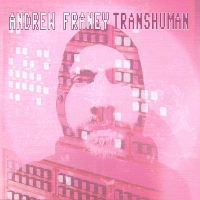
Andrew Franey
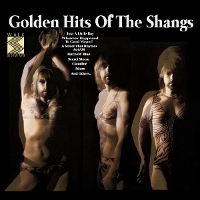
The Shangs

Alex Cuba

Tri Nguyen
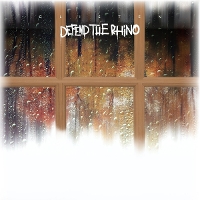
Defend The Rhino

Talltale
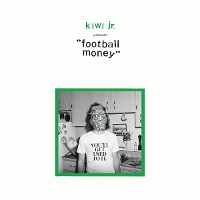
Kiwi Jr.

Plaster

Hyness
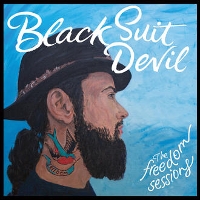
Black Suit Devil
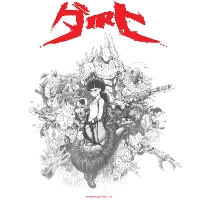
Yamantaka // Sonic Titan
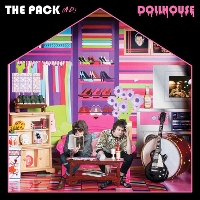
The Pack A.D.
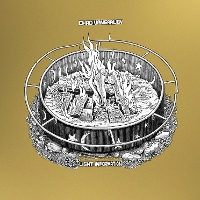
Chad VanGaalen

Potengowski Anna Friederike
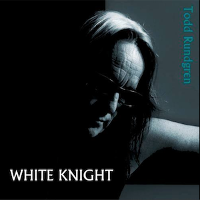
Todd Rundgren

Old 97's
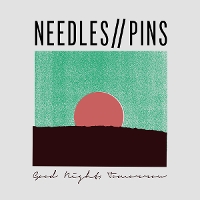
Needles//Pins



